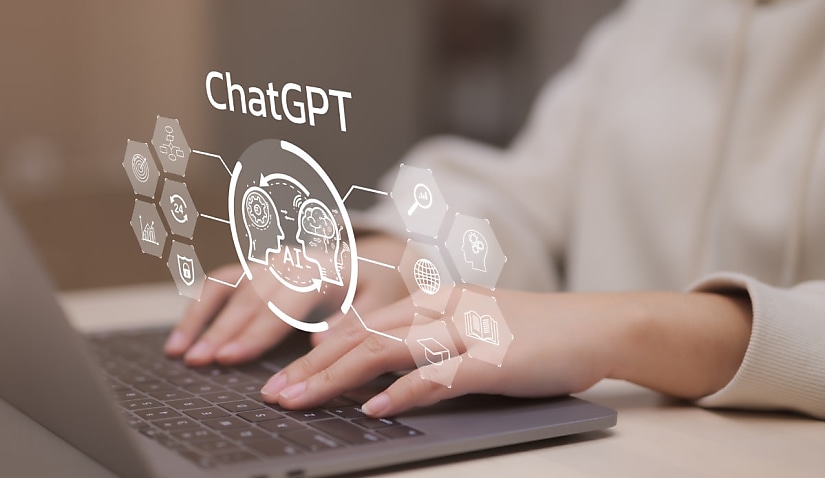Powered by MOMENTUM MEDIA
With the changing landscape of legal and AI tech comes evolving skill sets, something which young lawyers, in particular, need to be aware of early on in their careers.

Artificial intelligence (AI) technologies have, so far this year, had a massive impact on the legal profession, as ChatGPT continues to make global headlines.
A noisy debate has subsequently emerged over ChatGPT and similar AI tech. On the one hand, platforms like ChatGPT are a “useful resource” for boutique firms and BigLaw firms alike and will require a focus on key skills and a rethink on legal education, even if the new tech can’t replace lawyers entirely (at least not yet).
However, there are certainly fears that AI’s rise could mean the beginning of the end of lawyers — even if it should be used cautiously in courts and demands new workplace policies, despite the fact that ChatGPT can be used to cheat on law school exams and is, in the eyes of some, “no different to Wikipedia”. Billable hours have also been revealed to be at further risk with the development of AI tech.
To read Lawyers Weekly’s full series of ChatGPT stories, click here.
New technologies and AI programs are increasingly and continually impacting the legal profession, forcing lawyers’ skill sets to evolve — something that Gilbert + Tobin partner and chief knowledge innovation officer Caryn Sandler said was particularly important for emerging lawyers.
“Innovation culture thrives when we remove the artificial divide between the practice of law and the business of law. If lawyers wish to be successful in their careers, they need to understand both aspects,” she told Lawyers Weekly.
“From the outset, our focus has been to educate and develop our lawyers as legal experts and impactful leaders who appreciate the importance of cultivating and overlaying an innovative mindset.”
To this end, emerging lawyers need to be more digitally literate and tech-savvy than ever before, Swinburne Law School LLB course director and senior lecturer Dr Mitchell Adams explained.
“The emerging lawyer of the future will be technology-enabled with digital literacy skills at their core. They will look like a highly skilled professional, both in traditional legal practice and technological practice. This will include a strong understanding of AI and its applications. Consumers of legal services will likely grow to expect this of their lawyers,” he said.
“[However], generative AI is still very early in its development. Younger lawyers should see beyond the gimmicks and have a go at playing around with these platforms. But more importantly, to know how they work and what it is currently being integrated into. Understanding how it could be used in the future will be essential.”
The impact of ChatGPT and other generative AI technologies on the legal profession is yet to be seen — but Baker McKenzie’s chair of the Australian offices and TMT partner, Adrian Lawrence, said that young lawyers need to remain adaptable moving forward.
Certainly, technologies that utilise AI or machine learning are already impacting how lawyers operate, particularly in some areas of practice. While it’s likely that all areas of practice — and ultimately perhaps the entire profession — will be impacted by AI systems to some extent, it is a little early to be predicting the wholesale replacement of knowledge industries by generative AI,” he said.
“But the most important tool in a young lawyer’s arsenal is a willingness to explore the technologies, tools and new ways of working that are becoming available. Again, this does not mean that every lawyer needs to become a computer scientist, or an expert coder — although some no doubt will.
“What it does mean is that lawyers need to be curious about the tools available, about how best to use them to optimise their practices — and to be open-minded about what that might mean for their choices and areas of focus for their careers.”
While Mr Lawrence said that it’s not yet clear whether lawyers will need to become “technology specialists” in the near future, it remains true that emerging lawyers need to be adaptable.
“A few years ago, it was said that lawyers would need to develop coding skills as more and more contractual arrangements moved onto the blockchain as smart contracts. While that might be relevant for a small specialist subset, it has not really played out across the board,” he added.
“However, it is true to say that lawyers need to understand and adapt to the use of tech tools — and this will inevitably come to include AI-driven tools. For most lawyers, this will be about understanding the benefits and capabilities of technology, and how tools can be integrated into their practice and everyday activities, then necessarily becoming tech specialists themselves. That said, we would certainly expect to see more tech skill across the board, including more tech specialist roles, within law firms (and indeed all professional service firms).”
As more tech roles increasingly become available to junior lawyers, G+T currently rotates summer clerks and graduates into the firm’s legal service innovation practice, which Ms Sandler said gives “them exposure to and an opportunity for in-depth learning of technology and innovation”.
“This develops skills that go beyond traditional practice methods and prepare lawyers for an increasingly diverse and tech-driven marketplace,” she added.
“While we will still need lawyers with strong technical expertise, the successful lawyer of the future must combine this technical excellence with very strong legal problem-solving and analytical skills, and the ability to present solutions and make sound business decisions for their client.”
We're evolving — and so should your insights. Heads up — Lawyers Weekly is going premium from 1 May for just $5 a month. Stay informed without missing a beat. More information coming soon.